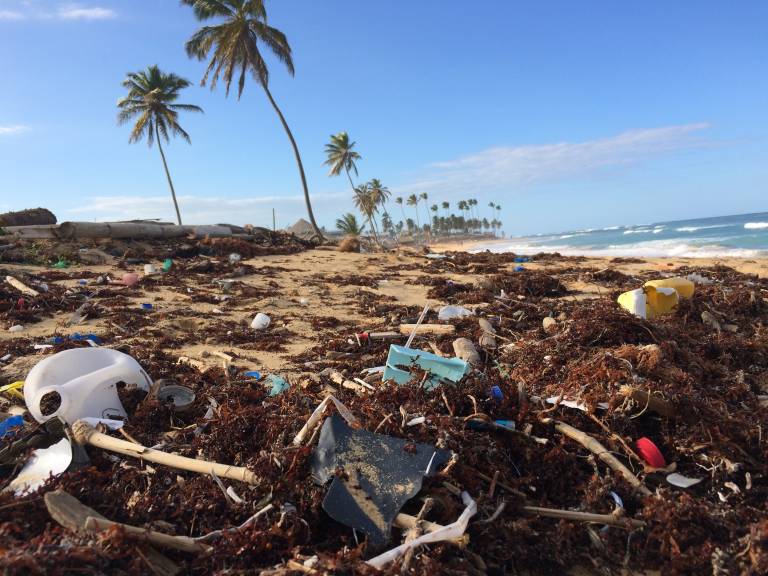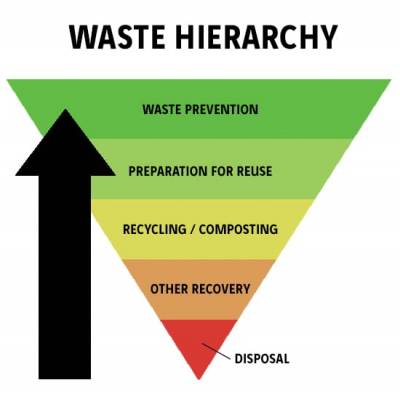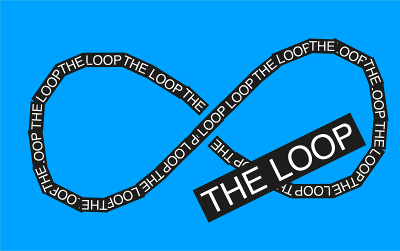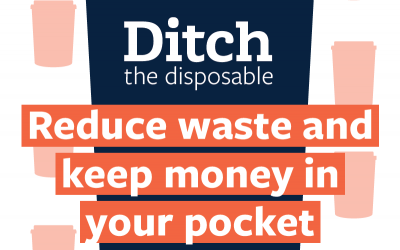Avoid plastic alternatives: more harm than good
4 June 2019
Plastics have become a buzzword for sustainability, an issue many people can relate to and many want to tackle. Biodegradable and compostable items can seem like a better alternative to single-use plastics, but is this really the case?

Like most sustainability issues, the answer is complex. UCL’s Sustainability Team has produced this guide to explain why this isn’t the best solution for UCL. The chief scientist at the UN’s Environment Programme endorses this view. Read more on The Guardian - Biodegradable Plastic False Solution For Ocean Waste Problem
What do we mean by alternatives?
The words ‘biodegradable’ and ‘compostable’ are used interchangeably, however, there are key differences.
Compostable materials require certain conditions to break down in home composting or industrial composting facilities e.g. specific temperatures, moisture, light and oxygen, whereas biodegradable materials break down naturally, but take a longer period of time (years versus weeks for compostable materials).
Compostable items are certified, unlike biodegradable items – for example, a product with 70% organic material and 30% plastic could be sold as biodegradable.
Both materials contaminate UCL's recycling and food bins and thus must be disposed of in UCL's general waste bins for incineration.
Issues with biodegradable and compostable plastics
- They contaminate UCL's recycling and food waste bins – there is often uncertainty around how to dispose of these items. They contaminate UCL’s recycling and food waste streams, actually leading to reduced recycling and anaerobic digestion rates! (Anaerobic digestion is how we generate energy from our food waste).
- The material is not as sustainable as you think – some of these items are made from finite sources such as oil and some have toxic components.
- They don’t necessarily protect marine life – while these items break down they can still be ingested by marine animals, as both large chunks and microplastics at all stages of the breakdown process – and there’s no way of stopping this. In fact, they don’t always break down, due to the specific conditions required. Recent research demonstrates that biodegradable bags can still be intact (and even useable) after several years. Read The Guardian - 'Biodegradable' plastic bags survive three years in soil and sea
- They are still single-use – it’s not a great solution because we are still creating, using and disposing (a linear economy), as opposed to a circular economy where we keep resources in use for as long as possible, extract the maximum value when in use, then recover and regenerate products and materials at the end of service. The waste hierarchy for resource and energy consumption shows that disposal uses the most resources and energy – it’s the least sustainable.

So what can I use instead?
Instead, we want to be preventing waste in the first place by removing the need for disposables where possible and replacing them with reusables.
Here are our top tips for avoiding disposables at events and meetings:
- Order glasses and crockery when catering for an event to avoid using plastic cups, coffee cups and plastic-lined paper plates.
- Ask the venue and caterers not to supply straws and stirrers with your order
- Ask people to bring their own cup and bottle to the meeting or event, and communicate this on the meeting invite or event page.
- Place glasses next to the water fountain in the office, or ask people to bring their own bottle. You could run your own #DitchTheDisposableUCL office event to launch this.
- Communicate your efforts, whether it’s on the event page, meeting invite or with a sign, help others understand why you won’t be using disposables to be more sustainable.
- Communicate your successes! Sustainability is a journey and it’s important to recognise and celebrate your achievements along the way, such as how many disposables you saved at your event, meeting or in your department. You might even inspire others to act!
> read more on how to run sustainable events
Please use reusable items instead
Hopefully, that’s helped highlight why biodegradable and compostable items aren’t the best alternative solution to single-use plastics and why UCL won’t be endorsing them anytime soon. Instead let’s cut our use of disposables by using reusable items. This is part of our #DitchTheDisposableUCL campaign.
Read more from the BBC - Plant-based compostable plastics going to landfill
 Close
Close



